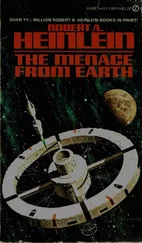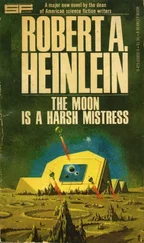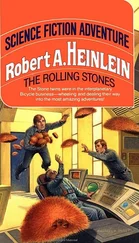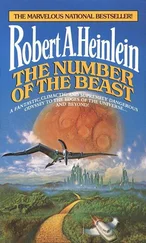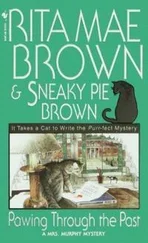Robert Heinlein - The Past Through Tomorrow
Здесь есть возможность читать онлайн «Robert Heinlein - The Past Through Tomorrow» весь текст электронной книги совершенно бесплатно (целиком полную версию без сокращений). В некоторых случаях можно слушать аудио, скачать через торрент в формате fb2 и присутствует краткое содержание. Жанр: Фантастика и фэнтези, на английском языке. Описание произведения, (предисловие) а так же отзывы посетителей доступны на портале библиотеки ЛибКат.
- Название:The Past Through Tomorrow
- Автор:
- Жанр:
- Год:неизвестен
- ISBN:нет данных
- Рейтинг книги:5 / 5. Голосов: 1
-
Избранное:Добавить в избранное
- Отзывы:
-
Ваша оценка:
- 100
- 1
- 2
- 3
- 4
- 5
The Past Through Tomorrow: краткое содержание, описание и аннотация
Предлагаем к чтению аннотацию, описание, краткое содержание или предисловие (зависит от того, что написал сам автор книги «The Past Through Tomorrow»). Если вы не нашли необходимую информацию о книге — напишите в комментариях, мы постараемся отыскать её.
The Past Through Tomorrow — читать онлайн бесплатно полную книгу (весь текст) целиком
Ниже представлен текст книги, разбитый по страницам. Система сохранения места последней прочитанной страницы, позволяет с удобством читать онлайн бесплатно книгу «The Past Through Tomorrow», без необходимости каждый раз заново искать на чём Вы остановились. Поставьте закладку, и сможете в любой момент перейти на страницу, на которой закончили чтение.
Интервал:
Закладка:
Robert A. Heinlein
The Past Through Tomorrow
Introduction by Damon Knight
The year is 1967, and in Carmel, California, a retired admiral named Robert A. Heinlein is tending his garden. Commissioned in 1929, he served through World War II with distinction, taught aeronautical engineering for a few years, then became a partner in a modestly successful electronics firm. Aside from his neighbors, his business associates and Navy friends, no one has ever heard of him.
This is a likely story, but not true. What really happened is much less probable: six years after graduation from the Naval Academy, while serving on a destroyer, Heinlein contracted tuberculosis. He spent a couple of years in bed, then was retired at the age of 27.
Like the consumptive Robert Louis Stevenson, like Mark Twain, whose career as a river-boat pilot was swept away by the war, Heinlein turned to writing almost at random, because he could not lead the more active life he would have preferred. Cut adrift from the Navy and from the life-line that would have led him to that rose garden in Carmel, he took graduate courses in physics and mathematics, intending to pursue his old dream of becoming an astronomer, but was again forced to drop out because of poor health. He tried his hand at silver mining, politics, real estate, without conspicuous success.
Then, in 1939, he happened across the announcement of an amateur short-story contest in a magazine called Thrilling Wonder Stories. The prize was $50, not a fortune, but not to be sneezed at. Heinlein wrote a story, called it 'Life-Line', and submitted it, not to the contest editor, but to John W. Campbell, editor of Astounding Science-Fiction. Campbell bought it, and the next one, and the next. Heinlein's reaction was, 'How long has this been going on? And why didn't anybody ever tell me?' Except for the war years, which he spent at the Naval Air Experimental Station in Philadelphia in 'the necessary tedium of aviation engineering', he never did anything else for a living again. In the February, 1941, issue of Astounding, in which two Heinlein stories appeared (one under the pseudonym Anson MacDonald), the editor wrote:
Robert A. Heinlein's back again next month with the cover story, "Logic of Empire". This story is, as usual with Heinlein's material, a soundly worked out, fast-moving yarn, more than able to stand on its own feet. But in connection with it, I'd like to mention something that may or may not have been noticed by the regular readers of Astounding: all Heinlein's science-fiction is laid against a common background of a proposed future history of the world and of the United States. Heinlein's worked the thing out in detail that grows with each story; he has an outlined and graphed history of the future with characters, dates of major discoveries, et cetera, plotted in. i'm trying to get him to let me have a photostat of that history chart; if I lay hands on it, I'm going to publish it.'
He published the chart three months later-the same chart, with some modifications and additions, that appears in this book. Heinlein had the cover of that issue too, with a story called 'Universe'.
'Future History' is Campbell's phrase, not Heinlein's, and the author has sometimes been mildly embarrassed by it. This connected series of stories does not pretend to be prophetic. It is a history, not of the future, but of a future-an alternate probability world (perhaps the same one in which the retired Rear Admiral is tending his roses) which is logically self consistent, dramatic, and recognizably an offshoot of our own past. The stories really do not form a linear series at all-they are more like a pyramid, in which earlier stories provide a solid base for later ones to rest on.
Partly because of this pyramiding of background and partly because of the author's broad knowledge-about which more in a moment-Heinlein's readers find themselves in a world which is clearly our own, only projected a few years or decades into the future. There have been changes, naturally, but they are things you feel you could adjust to without much trouble. People are still people: they read Time magazines, are worried about money, smoke Luckies, argue with theft wives.
It is easy to say what the ideal science fiction writer would be like. He would be a talented and imaginative writer, trained in the physical and social sciences and in engineering, with a broad and varied experience of people - not only scientists and engineers, but secretaries, lawyers, labor leaders, admen, newspapermen, politicians, businessmen. The trouble is that no one in his senses would spend the time to acquire all this training and background merely in order to write science fiction. But Heinlein had it all.
Far more of Heinlein's work comes out of his own experience than most people realize. When he doesn't know something himself, he is too conscientious a workman to guess at it: he goes and finds out. His stories are full of precisely right details, the product of painstaking research. But many of the things he writes about, including some that strain the reader's credulity, are from his own life. A few examples, out of many:
The elaborate discussion of the problems of linkages in designing household robots, in The Door Into Summer. Heinlein was an engineer, specializing in linkages.
The hand-to-hand combat skills of the heroes of such stories as Gulf and Glory Road. Heinlein himself is an expert marksman, swordsman and rough-and-tumble fighter.
The redheaded and improbably multi-skilled heroine of The Puppet Masters and other Heinlein stories. Heinlein's redheaded wife Ginny is a chemist, biochemist, aviation test engineer, experimental horticulturist; she earned varsity letters at N.Y.U. in swimming, diving, basketball and field hockey, and became a competitive figure skater after graduation; she speaks seven languages so far, and is starting on an eighth.
The longevity of the 'Families' in Methuselah's Children. Five of Heinlein's six brothers and sisters are still living. So is his mother: she is 87, 'frail, but very much alive and mentally active.' All the returns are not in yet.
Even the improbably talented families that appear in The Rolling Stones and elsewhere are not wild inventions: Heinlein himself played chess before he could read. Of his three brothers, one is a professor of electrical engineering, one a professor of political science, and the third is a retired major general who 'made it the hard way - i.e., from private right up through every rank without any college education at all.'
Like Mark Twain, Heinlein is from Missouri. It shows in his skepticism, his rich appreciation of human absurdity, and in an occasional turn of phrase - a taste for gaudily embellished understatement. He has the Missourian admiration for competence of any kind, for those who can get things done - even (or perhaps especially) if they bend a few rules in the process. (Heinlein: 'I stood quite high at the Naval Academy and would have stood much higher save for a tendency to collect "Black N's" - major offenses against military discipline.') Unlike most modern novelists, he has no patience with the unskilled and incompetent. Those who contribute most to the world, Heinlein thinks, are also those who have the most fun. Those who contribute nothing are objects of pity; and pity for the self-pitying is not high on Heinlein's list of virtues. This tough-mindedness is an altogether different thing from the cynicism of other writers. Heinlein is a moralist to the core; he devoutly believes in courage, honor, self-discipline, self-sacrifice for love or duty. Above all, he is a libertarian. 'When any government, or any church for that matter, undertakes to say to its subjects, "This you may not read, this you must not see, this you are forbidden to know," the end result is tyranny and oppression, no matter how holy the motives. Mighty little force is needed to control a man whose mind has been hoodwinked; contrariwise, no amount of force can control a free man, a man whose mind is free. No, not the rack, not fission bombs, not anything - you can't conquer a free man; the most you can do is kill him.'
Читать дальшеИнтервал:
Закладка:
Похожие книги на «The Past Through Tomorrow»
Представляем Вашему вниманию похожие книги на «The Past Through Tomorrow» списком для выбора. Мы отобрали схожую по названию и смыслу литературу в надежде предоставить читателям больше вариантов отыскать новые, интересные, ещё непрочитанные произведения.
Обсуждение, отзывы о книге «The Past Through Tomorrow» и просто собственные мнения читателей. Оставьте ваши комментарии, напишите, что Вы думаете о произведении, его смысле или главных героях. Укажите что конкретно понравилось, а что нет, и почему Вы так считаете.

